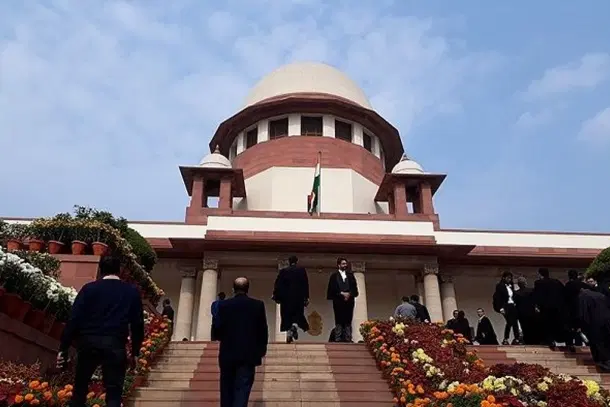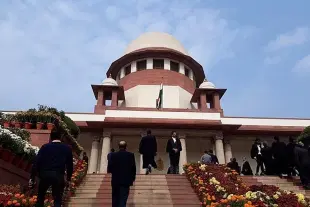News Brief
No GRAP-IV Relaxations For Delhi As Supreme Court Notes Lack Of Consistent Air Quality Improvement; Next Hearing On 5 December
Arjun Brij
Dec 02, 2024, 05:07 PM | Updated 05:07 PM IST
Save & read from anywhere!
Bookmark stories for easy access on any device or the Swarajya app.


The Supreme Court of India rejected requests to ease the restrictions imposed under Stage-IV of the Graded Response Action Plan (GRAP) in Delhi, which were introduced to address the city's severe air pollution crisis.
During the hearing on Monday (2 December), the Court considered suggestions from the Commission for Air Quality Management (CAQM) for possible relaxations to the stringent measures.
However, a bench consisting of Justices Abhay S Oka and Augustine George Masih decided that it would only reconsider the proposed relaxations on 5 December, after analysing the air quality trends, reported LiveLaw.
The request for easing the restrictions came from Additional Solicitor General (ASG) Aishwarya Bhati, representing the CAQM. Bhati highlighted that the ongoing GRAP Stage-IV measures were disruptive and that the Commission had proposed certain relaxations.
However, Justice Oka pointed out that the Air Quality Index (AQI) had not shown consistent improvement and had, in fact, worsened in recent days. The court was firm in its stance, stating that no relaxations would be permitted until there was a clear downward trend in AQI levels.
Justice Oka further emphasised the Court’s approach, saying, "We will examine your suggestions, but today we will not allow any relaxations." He added that the decision to ease the restrictions would depend on consistent improvements in air quality.
The Court made it clear that any relaxation of the restrictions would be contingent on consistent and sustained improvements in the AQI. "We will apply our mind to these suggestions but we want to ensure that there is a downward trend before we permit relaxations. Ultimately someday we will have to leave it to you. But at least we must be satisfied that there is some consistent downward trend," Justice Oka said.
The court’s order indicated that it would review the AQI figures again on 5 December, based on the data available at that time, and hear arguments regarding the CAQM's proposed relaxations. The bench assured that it would pass appropriate orders based on the AQI trends and the need for continued action.
Arjun Brij is an Editorial Associate at Swarajya. He tweets at @arjun_brij




